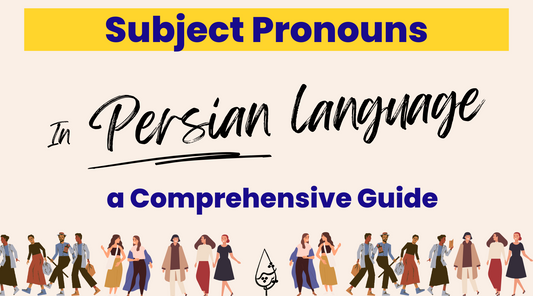When learning Persian, you'll quickly encounter the phrase "خسته نباشی" (khaste nabāshi). It's a common and culturally significant expression that doesn't have a direct English equivalent but plays an important role in everyday interactions. Let's dive into what it means, how it's used, and how you can incorporate it into your Persian conversations.
you can learn how to pronounce 'kh' خ here.
Literal Translation and Meaning
Literally, "خسته نباشی" translates to "may you not be tired." However, its usage goes beyond this literal meaning. It's a versatile phrase used to acknowledge someone's hard work, express appreciation, or offer encouragement. Think of it as the Persian equivalent of saying "well done," "good job," or "thank you for your hard work."
When to Use "خسته نباشی"
-
Workplace Situations:
-
Example: After a colleague finishes a project or completes a task, you might say, "خسته نباشی." It’s a way of showing appreciation for their effort.
- Colleague: "I finally finished the report."
- You: "خسته نباشی! It looks great."
-
Example: After a colleague finishes a project or completes a task, you might say, "خسته نباشی." It’s a way of showing appreciation for their effort.

-
Daily Interactions:
-
Example: If a friend helps you with something, like moving furniture or fixing something around the house, you can use this phrase to thank them.
- Friend: "I fixed your bike."
- You: "خسته نباشی! I really appreciate it."
-
Example: If a friend helps you with something, like moving furniture or fixing something around the house, you can use this phrase to thank them.
-
End of the Day:
-
Example: At the end of a long day, you can use it to acknowledge someone's efforts throughout the day.
- Family Member: "Today was really busy at work."
- You: "خسته نباشی! You deserve to relax."
-
Example: At the end of a long day, you can use it to acknowledge someone's efforts throughout the day.

Variations and Responses
- خسته نباشید (khasté nabâshid): A more formal or plural version, used when addressing elders, strangers, or groups.
- خسته نباشی عزیزم (khasté nabâshi azizam): "Well done, dear." Adding "عزیزم" makes it more affectionate.
- همگی خسته نباشید (hamegi khasté nabâshid): "Well done, everyone." Used when addressing a group.
Responses: When someone says "خسته نباشی" to you, a common response is "ممنون" (mamnoon, meaning "thank you") or "سلامت باشید" (salâmat bâshid, meaning "may you be healthy").
Cultural Significance
The phrase "خسته نباشی" reflects the communal and appreciative nature of Persian culture. It emphasizes the value placed on hard work and the importance of recognizing and expressing gratitude for the efforts of others. It's not just about the words but the sentiment behind them.
A Synonym: "خدا قوت" (Khodā Ghovvat)
Due to the word "خسته" (khaste), which means "tired," some people prefer using the expression "خدا قوت" (khoda ghovvat) instead. "خدا قوت" translates to "God give you strength," and is used in the same context to appreciate someone's hard work without implying any tiredness. This phrase is often preferred for its more positive connotation and encouragement.
Practice Makes Perfect
Try incorporating "خسته نباشی" or "خدا قوت" into your conversations with Persian speakers. Whether you're thanking someone for their help or acknowledging their hard work, using these phrases will help you connect more deeply with the language and culture.
Remember, learning a new language is not just about vocabulary and grammar—it's about understanding and embracing the cultural nuances that bring the language to life. So next time you want to appreciate someone's effort in Persian, don't hesitate to say "خسته نباشی" or "خدا قوت!"
Feel free to share your experiences using these phrases in the comments below. How did the other person react? Did it help you feel more connected to Persian culture?
🧡Learn, enjoy connect🧡




